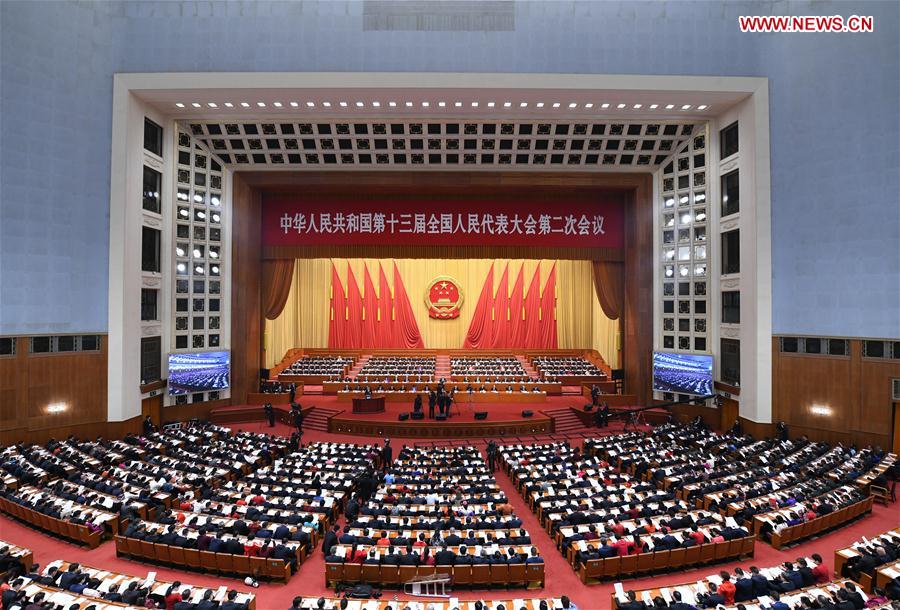Nearly everything on table at two sessions


Every March, China holds its two most important meetings of the political calendar: the annual sessions of the National Committee of the Chinese People's Political Consultative Conference and the National People's Congress.
With smoke from the roman candles dispersing after the extended holiday period and the bravest birds of the migratory masses making their presence known with loud tweets and caws, the two sessions are in their second and final week.
While there are no comprehensive, authoritative press packets available that provide a full overview of all topics to be tabled at the multi-day event in the nation's capital, one issue on the front burner at this year's two sessions is poverty eradication.
The 18th National Congress of the Communist Party of China in 2012 is perhaps best noted for the official unveiling of the Party's two Centenary Goals. The first aims to realize a moderately prosperous society by 2021, which marks 100th anniversary of the Party's founding. Reducing the ranks of the poor is part and parcel of realizing this objective.
By the end of next year, the government is targeting the elimination of absolute poverty. This campaign comes at a time of massive demographic transformations in the world's most populous country. Around seven years ago, China became a majority urban population for the first time after millennia of being a predominantly rural society.
Couple this with the fact that the masses migrating from farms to factories these past few decades have primarily been young, vivacious, wide-eyed adventure seekers, who not only want to experience life off the farm, but also make enough money to send some home to support those who remained behind.
Naturally, this latter group has mainly consisted of the very old and the very young-that is, those not able to handle the rigor and stress of a big-city job.
With the young muscle making themselves metropolis bound, rural areas have struggled at times to maintain the same levels of agricultural output per hectare they were able to achieve when a surplus of farmhands was on hand.
This has led to two downstream phenomena, both of which carry their own risks and opportunities.
The first is the need to boost agricultural productivity. With a shortage of limber limbs in the paddies and fields, this often leads to innovations in farm machinery and improved fertilizers.
It also creates greater demand for foodstuff imports, which helps ease trade imbalances with key partners, but can place new stress on those still in the agricultural business at home.
To help matters, the government has been keeping a close watch on socioeconomic conditions across the country, especially in the less developed hinterlands.
And since 2016, the authorities have pledged to pull at least 10 million people out of rural poverty each year. In the same year, the one-child policy was officially relaxed nationwide and recent announcements are pointing toward even providing financial incentives for families who expand beyond three members.
Since China began opening to the world some four decades ago, trade and investment have been a tremendous boon to the economy. Over the ensuing years, the country has lifted more people out of poverty and into a growing middle class than any society in history. These issues are likely to be at the core of the conversation during the two sessions.
Other pressing matters such as the reform of State-owned enterprises, healthcare, education and renewable energy will certainly be discussed.
With a little creativity, even these issues can be related to the general well-being of China's 1.4 billion residents, so nearly everything is potentially on the table at the two sessions.
- Yuyuan Garden lights up with Year of the Snake lantern installations
- New dendrobium orchid species found in Sichuan
- People welcome the New Year across China
- China's railway trips expected to hit 11.5 million on New Year's Day
- Beijing: where ancient traditions meet modern marvels
- Beijing-Tianjin-Hebei 2025 celebrations shine at Zhengding county





































